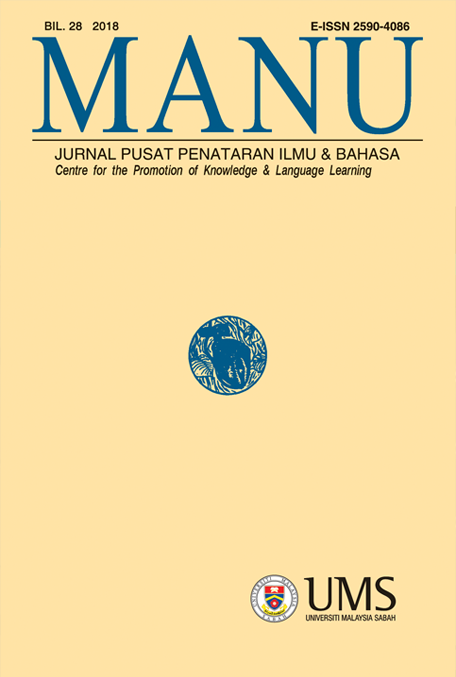AMALAN KEPIMPINAN INSTRUKSIONAL GURU BESAR DI SEKOLAH VERNAKULAR NEGERI SELANGOR DAN WILAYAH PERSEKUTUAN
School Leaders’ Instructional Leadership Practices at Selangor and Federal Territory Vernacular Schools
DOI:
https://doi.org/10.51200/manu.v28i.1586Abstract
Abstrak
Kajian kualitatif ini bertujuan untuk mengkaji amalan kepimpinan instruksional guru besar di Sekolah Vernakular Negeri Selangor dan Wilayah Persekutuan. Kajian ini menggunakan temu bual separa berstruktur terhadap 14 orang guru besar di dua jenis sekolah vernakular, iaitu Sekolah Rendah Jenis Kebangsaan Tamil (SRJK (T)) dan Sekolah Rendah Jenis Kebangsaan Cina (SRJK(C)) yang terletak di kawasan bandar dan pinggir bandar. Teknik persampelan bertujuan yang dijalankan di dua jenis sekolah ini mendapati bahawa guru besar memahami tugas mereka untuk meningkatkan amalan pengajaran melalui penyeliaan guru. Dapatan juga menunjukkan amalan kepimpinan guru besar dalam memantau kualiti pengajaran dan pembelajaran di sekolah dijalankan dalam pelbagai kaedah. Kajian ini turut menunjukkan bahawa sebahagian daripada tugas dan harapan guru besar di Malaysia adalah selari dengan ciri-ciri dalam kepimpinan instruksional. Dalam konteks lain pula, beban kerja seorang guru besar dan keperluan untuk membuat pelaporan telah mendatangkan pelbagai cabaran berterusan kepada mereka semasa menjalankan tugas sebagai seorang pemimpin instruksional. Implikasi daripada kajian ini mempamerkan realiti kontemporari peranan guru besar dan amalan kepimpinan instruksional mereka di sekolah vernakular di Malaysia. Kesimpulannya, kajian ini menunjukkan kepimpinan instruksional dibina atas pengaruh sosial, politik dan budaya.
Kata kunci: Amalan kepimpinan instruksional, pemimpin instruksional, guru besar.
Abstract
The purpose of this qualitative study is to outline school leaders’ instructional leadership practices in Selangor and Federal Territory Vernacular Schools. Semi-structured interviews were conducted with 14 primary school leaders from Chinese Schools (SRJK(C)) and Tamil Schools (SRJK (T)) in urban and suburban areas in Malaysia. The sampling technique utilised in two of these schools generated findings which showed that the school leaders understood their duties in improving instructional practice through supervision of teachers. Findings also showed school leaders’ leadership practices in monitoring the quality of teaching and learning in schools was done in many ways. The research also demonstrated some of the duties and hope of the school leaders’ in Malaysia as being particularly congruent with the features of instructional leadership practices. In another context, the workload of a school leader and the need for reporting has led to a series of challenges for them in carrying out their duties as instructional leaders. The implication of this study demonstrates the current reality of the roles of school leaders and their instructional leadership roles in vernacular schools in Malaysia. In conclusion, this research shows that instructional leadership is built on social, political and cultural influences.
Keywords: Instructional leadership practices, instructional leader, school leader.
Downloads
Published
How to Cite
Issue
Section
License
All right reserved. No part of this publication can be reproduced without prior written permission of the copyright holder. The written permission of the copyright holder must be obtained before any parts of this publication is stored in a retrieval system of any nature.
Requests for permission to duplicate an article, review or part of this journal should be addressed to the Chief Editor, MANU, Centre for the Promotion of Knowledge and Language Learning, Universiti Malaysia Sabah, Jalan UMS, 88400 Kota Kinabalu, Sabah, Malaysia.









